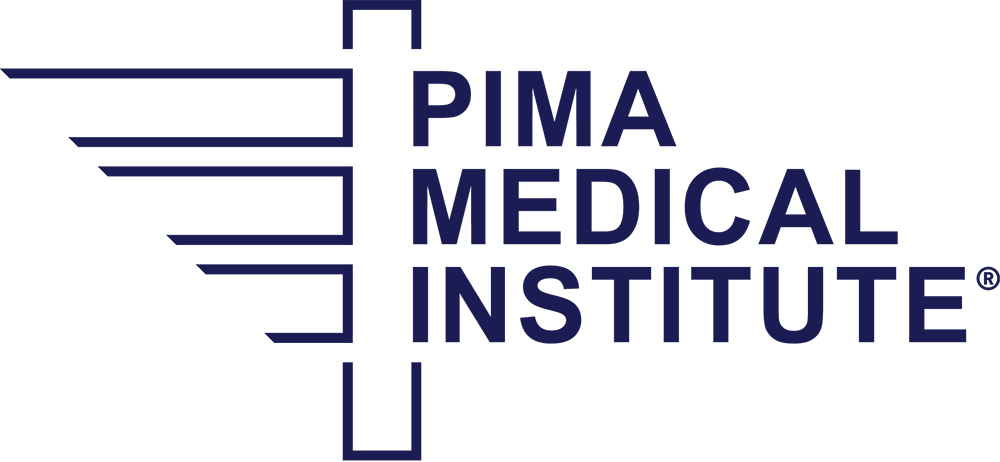Meet Betty-Pauline Gradillas, MEd, RCP, RRT. BP, as she’s called, is the Respiratory Therapy program director at our Tucson campus. She has been with Pima Medical for 17 years and in the respiratory therapy field for more than three decades. While at Pima Medical, she has been a leader in everything from classroom and clinical instruction, to being program director of the online Bachelor of Science in Respiratory Therapy program.
Our team sat down with BP recently for a Q & A session. She describes her work, what students at Pima Medical can expect and the top three things people might be surprised to find out about the profession.
Check it out.
Q; How would you describe your job to someone outside the medical field?
A: “As an RT, I save lives. I see people on their worst, most stressful day. If you cannot breathe, nothing else matters—what you drive, what you wear, how much you make, none of that means anything if you cannot breathe. I get to see people go from their worst day to being able to leave the hospital, hopefully on their own accord. I primarily worked PEDS when I did bedside care. I have seen these kiddos grow up, graduate from high school, start families and thrive in their lives.
Q: What drew you to this profession? What made you want to enter this field?
A: “Initially in college, I was a nursing major. When I applied to the RN program, I was placed on an alternates list. Not knowing what to do, the advisor let me know that there was in introduction to RT class I could take. Not completely sure what that was, I signed up. While sitting in class I thought, ‘this is what I thought I’d be doing as a nurse.’ When the nursing program called to let me know I could start, I told them I’d found something better and never looked back.”
Q: Describe a typical “day in the life.” If there is no “typical” day, tell us about that.
A: “There is nothing typical about a day as an RT. Sure, you may have the same assignment/patients, but they are in a different place with their breathing each day—hopefully on the road to recovery. The day usually begins with a report from the previous shift, getting started on the first rounds of treatments and ventilator/patient interface assessments. After that, it depends. In an intensive care unit, it could mean new patients, new emergencies, transports, and/or taking patients on/off life support equipment. This roller coaster continues until it is time for me to give my report to the next shift. In a general floor assignment, it might include patient/family education about a disease process, equipment they are going home with and their medications. In the Emergency Department, it might mean running from one airway emergency to another with a dash of patient/family education for medications and disease processes. No day is the same. Some days you need to bring your roller skates!”
Q: What is the toughest part of the work you do?
A: “Because we are seeing patients at their worst, the worst that can happen is being unsuccessful with recovery. This includes death and dying. As RTs, we are the ones responsible for the removing of “life support” equipment. Not the nurse or the doctor, it is the responsibility of the RT.”
Q: What is the most fulfilling part of your profession?
A: “Seeing those we thought would not recover or make it, walk out of the hospital. Seeing patients get better and helping them to understand their disease process and how to control it, as opposed to it controlling them.”
Q: What would you consider the top three things people may not know/understand about this job/career?
A: “It is fulfilling—you will see people at their worst and you will see them get better. We are at the bedside more often than the nurse or the doctor. You can work anywhere! Acute care, long-term care, diagnostic lab, sleep lab, research, education, management. Doors are being opened all the time.”
Q: What do you believe the top three things people considering this career should know?
A: “RTs are always going to be needed. Things like E-cigarettes and COVID are making sure of that, along with traumas, respiratory illnesses and the changes in the environment. The credential is national—you can take it anywhere! The license is state by state. There are more than 1000 jobs posted daily for RTs, some still with sign on bonuses and relocation bonuses.”
Q: “For students considering applying for this program, what would you tell them about the process? Do you have any tips to help them prepare for the process?
A: “Do your research! Once you have your interview scheduled, do your research! Come with questions! The interview is just as much for them to make sure this is the right program for them as it is to make sure they are the right applicant for the program.”

Q: Tell us how it feels to watch your students as they move through this process from the first semester through the externship process.
A: “Seeing the student connect the dots and watching the lightbulbs come on is the greatest! Watching them go from not knowing A from B to being able to set up and monitor life support and watching them interact with physicians as advocates for their patients is great! It is also very rewarding to see them successfully pass their Board exams and get that first job! I love hearing from them after they graduate and move on about what they are doing next, such as intubations and ECMO trainings.”
Q: What, in your opinion, makes Pima Medical different from the other schools out there?
A: “The personalized attention and small class sizes make a difference. This gives the student the opportunity to practice more, to ask questions, get that tutoring help they need. We also offer open door policies, where if an instructor is not teaching, they are available for tutoring.”
Q: Why would you recommend Pima Medical to someone considering this career?
A: “A key reason is because our faculty cares that the student understands the why behind what they are doing. Not that they can push a button or just give a breathing treatment. The students learn the answers to the why questions so that they can be their patients’ best advocate.
BP added, “This is a field/career that can support a family; it can be a stepping-stone to other healthcare careers, and non-healthcare careers too. I have never regretted becoming an RT. This career choice has given me the ability to raise my family and it will give me the opportunity to enjoy retirement (whenever that time comes.) I have been in education for about 32 years. As soon as I was able to be a clinical instructor, I was. I have gotten to see many students grow from being precepted with me to being a colleague by my side. Knowing that I had some hand in the RT they grew to become has been one of my most cherished memories.”
Are you looking for a rewarding career in healthcare? Find out if RT is the right fit for you!



